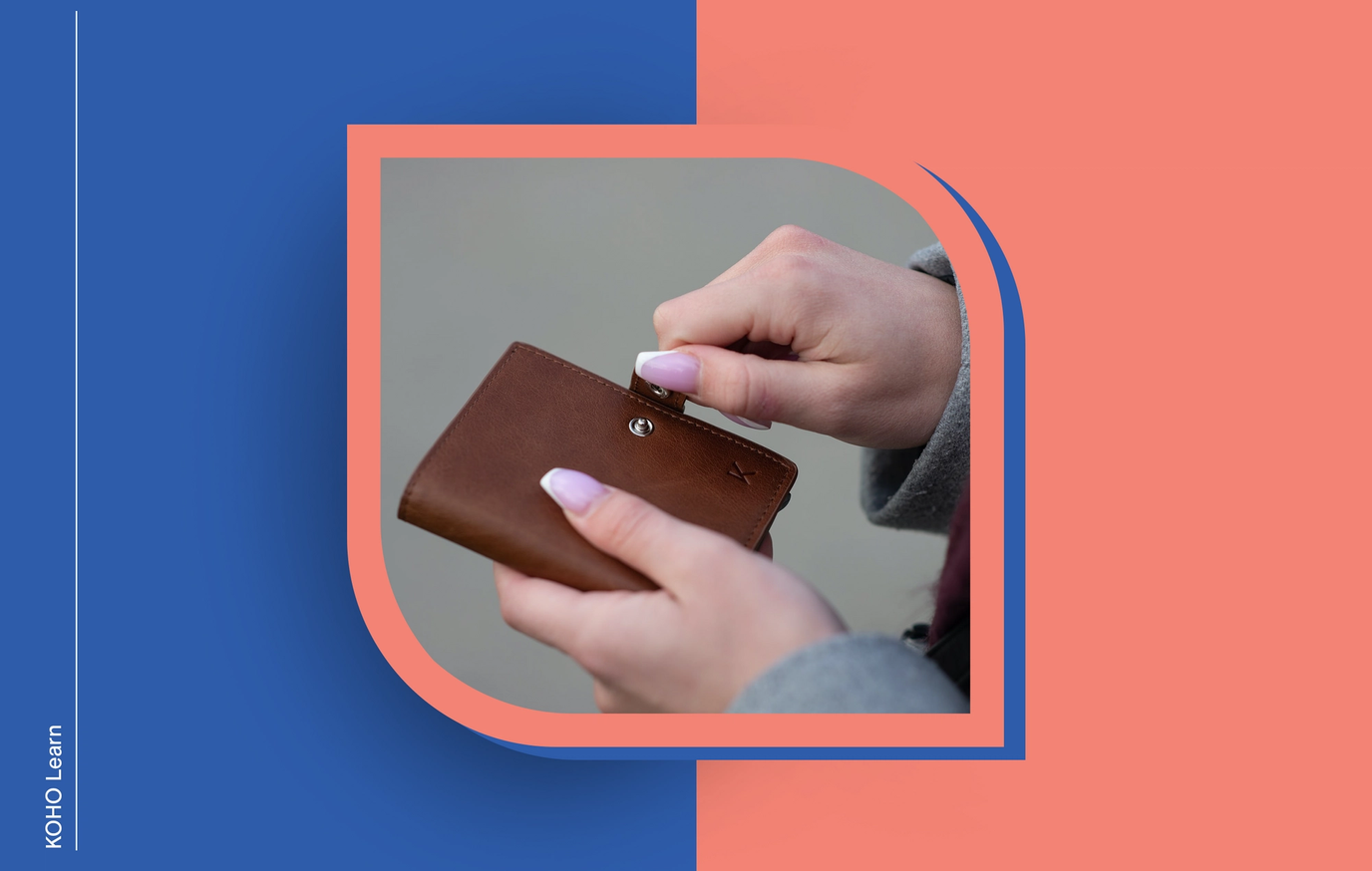Traveling to another country can be a wonderful experience. See new places, sample different cultures, taste exotic foods, see the world, and try new things. But it’s not cheap. We need money to travel, and we need to be smart with that money, organizing our spending to maximize our funds and minimize unnecessary expenses.
It’s important to think ahead about how you’re planning to spend your money while abroad. Credit cards and debit cards each have their benefits and drawbacks. You need to be informed about when and where to use each.
Credit Card vs. Debit Card: Which is the Best for Travel Abroad?
Which is better for traveling, credit or debit cards? This is a big question. And the answer is, well, both. Each type of card is great for different tasks.
Using a credit card abroad + / -
+ Protection
One of the most valuable things a credit card offers you is protection (and therefore peace of mind). Fraud protection will cover you in case your card is stolen and used or your account is hacked. Some cards offer travel insurance coverage. Some offer collision protection, meaning they’ll cover costs for damage to rental cars. Explore the different protections available through your credit card, so you’re prepared when you travel.
+ Rewards
Many credit cards also offer rewards for using the card. So, you can earn perks while you spend money on vacation. Rewards can include airpoints, cashback, access to airport lounges, roadside assistance, and priority access to tickets for major events.
+ Widely accepted
You can use them almost anywhere. Sure, you might encourage some remote villages on your travels where cards are not accepted, but in most towns and cities, you should be able to use your credit card for electronic purchases. This means you often don’t need to carry as much cash (although it’s always handy to have local currency in your pocket for smaller purchases, as well as for places that don’t accept cards).
+ Convenience
With a credit card in your wallet, you basically always have access to money. As long as your credit isn’t maxed out, you have spending power. And credit cards are often critical for booking things like plane tickets, hotels, and car rentals – many places will only accept a booking if they can put a credit card on file, so having a credit card can make life easier on vacation.
Foreign transaction fees
For most credit cards, with every purchase overseas, you’ll be charged foreign transaction fees. These can add up. A foreign transaction fee is charged on purchases made in foreign currencies or that pass through a foreign bank and are typically 2.5% of the purchase price. Foreign transaction fees differ between credit card companies and even between cards from the same provider.
ATM cash advance costs
Unless it’s an emergency, you shouldn’t use a credit card to withdraw money from an ATM. This applies here in Canada, too, but perhaps even more so when traveling. Unlike with a regular credit card purchase, where you usually have an interest-free grace period of 21 days or so, when you take out a cash advance from an ATM with a credit card, you are charged interest immediately. This is an unnecessary expense to take on.
Risk of debt from overspending
Whether at home or abroad, you run the risk of overspending with a credit card. Because they’re so convenient and it can feel like you have access to extra money, it’s easy to get carried away and make purchases you don’t need (and maybe can’t afford). Racking up a large credit card bill while enjoying your travels can put you in a financial hole when you get home.
Using a debit card abroad + / -
+ Less risk of overspending
One of the big benefits of using a debit card instead of a credit card is that you’re spending your own money, rather than borrowing the bank’s money. This makes it easier to stick to your budget and you won’t get carried away and overspend.There’s no interest on debit card purchases either, so you won’t be stuck paying down your debt once you return from vacation.
+ Better cash withdrawals at ATMs
With a debit card, you’re not charged interest on cash withdrawals, like you are with a credit card. Some debit cards offer lower transaction fees or no fees for foreign ATM withdrawals. Scotiabank, for example, is a member of the Global ATM Alliance, a network of international banks that remove or minimize fees for customers of other affiliated banks. Some of the KOHO prepaid Mastercards – which can be used like a debit card at ATMs - also offer fee-free withdrawals overseas.
+ Widely accepted
Like credit cards, debit cards are also pretty widely accepted.
Foreign transaction fees
Debit cards often charge foreign transaction fees when abroad, like credit cards. But not all debit cards are created equal in this regard – do some research to find the chequing account that makes the most sense for you, especially if you travel often, as some cards waive foreign transaction fees or give you a limited number of transaction per month before they charge.
Less fraud protection
Unlike with credit cards, you don’t have as much fraud protection with debit cards. While both types of cards typically offer fraud liability protection, you could still be out of pocket some money – as well as being inconvenienced. If there are unauthorized transactions on your debit card and you report it to your bank within two days, you might still be on the hook for up to $50. If you don’t notice for longer, or you wait longer to report it, you might be responsible for up to $500.
Tips For Safe and Easy Spending When Traveling Abroad
To ensure safe and hassle-free spending while abroad, consider the following suggestions for using credit and debit cards securely.
Notify your bank before your travel dates
Avoid unnecessary hassle by letting your bank know you’re heading overseas and ensure they have an up-to-date cell phone contact for you. This way they will be aware of your travel and won’t flag your foreign spending as potentially fraudulent, and can get in touch if needed. You don’t want your bank to flag your account and put it on hold for irregular spending. You can always contact your bank to inform them and have them reactivate your card if this happens – but it's an inconvenience.
Take note of your cards and finances
This seems basic, but make sure you’re on top of your finances. Ensure your credit and debit cards won’t expire while you’re away, as this would render them useless. And make sure you have enough money in your accounts (and your credit card isn’t maxed out) to cover your trip expenses, plus extra as emergency cover.
Consider carrying a mix of cash and cards
It’s often best to have a useful mix of cash and cards – both debit and credit cards. Cash in local currency is useful for smaller purchases and for paying in places where cards aren’t accepted. Debit cards overseas might not work at every restaurant or shop, and ATMs aren’t prevalent in more remote towns and villages, so cash is always useful.
Pay in local currency during electronic transactions
Sometimes when paying at restaurants and shops, their machines will have a feature asking if you want to pay in the local currency or convert into your home currency, which might make it easier to understand the cost in Canadian dollars. But be careful with this feature, which is known as dynamic currency conversion. While it’s tempting to convert to Canadian dollars, this function usually charges an additional fee for the privilege of showing you the total in CAD. Pay in the local currency instead and you’ll pay a rate set by your credit card provider, which will be closer to the true exchange rate.
KOHO for Traveling
Debit and credit cards both have their benefits when traveling. You can weigh your personal preferences and decide what’s best for you. One additional consideration should be prepaid cards – and in particular (although we may be biased here) the KOHO prepaid Mastercards.
KOHO prepaid Mastercards are great for travel. They’re prepaid, meaning they’re low-risk because you load them with your own money and can’t overspend. And they’re powered by Mastercard, so they’re accepted practically everywhere. With the KOHO Extra and KOHO Everything cards, there are no foreign transaction fees, and you also get one free foreign ATM withdrawal per month. On top of this, you earn cashback when you spend with your KOHO prepaid Mastercards, they’re fraud protected with Mastercard’s Zero Liability Policy, you can lock the cards at any time through the KOHO app, and you’ve got 24/7 support. So, yeah, we think they’re pretty great travellers.

About the author
Sam Boyer spends, invests, budgets, and writes. He enjoys writing about things he wishes he’d learned earlier — like spending, investing, and budgeting. A journalist originally from New Zealand, Sam has written extensively about consumer affairs, insurance, travel, health, and crime.
Read more about this author